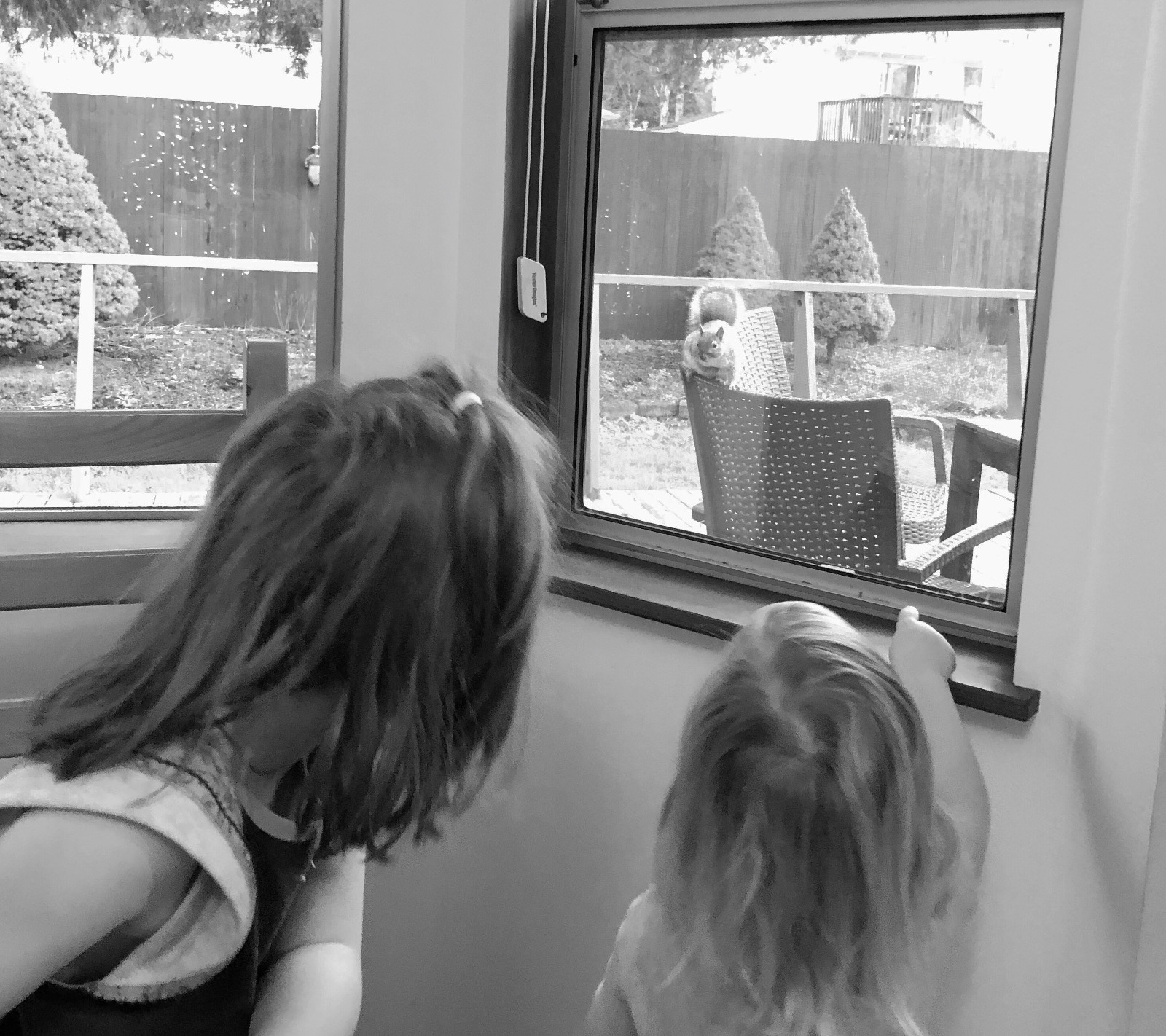Renee Beauregard Lute
Feeding the Squirrel
I can’t stop feeding the squirrel who visits my back yard every morning. I was going to call her simply the squirrel, but I don’t want to lie to you. Her name is Pearl. Pearl the Squir’l. Squirrely, Smooch, “C’mere Smoochy,” Miss Fluff. When my kids won’t eat the banana bread I made, Pearl does. Almonds, rice cakes with a swipe of peanut butter on them, a handful of Cheerios, stale crackers. Pearl eats it all.
I know she’s at the sliding door when my husband sighs out loud. “You have got to stop feeding this squirrel,” he says.
“Why do I have to?”
“Because she doesn’t act like a squirrel anymore. She waits at the door. She isn’t even afraid of the cats.”
He’s right. And in the early mornings, Pearl sits on the back of one of our deck chairs, front paws drawn to her chest like a meerkat. She can see into the kitchen window from that spot. She knows I’ll see her when I drink my coffee standing at the sink.
“You have to stop feeding her.”
But Pearl has three children, like me. Her soft body is tired, I’m sure. Her children climb into her bed at night and kick her. She orders her groceries from a delivery service because when does she have time to go to the grocery store, between various therapies and drop-offs and pick-ups at two separate schools? When does Pearl have time to find food of her own?
I’ve read articles by conservationists that try to dissuade people from feeding squirrels. They argue that the squirrels become too dependent, and too pesky. But Pearl isn’t squirrels. She’s just one. Am I endangering her? Will she run into an outdoor cat and not realize that it’s much more dangerous than my fat indoor cats who twitch their ears at her from inside? Will she bother our neighbors for food? Will she become helpless?
*
When I was young, my mother frequently reminded me, “I am your mother, not your friend.” When it was time to look at colleges, I looked at the closest ones to our house.
“Can I come home on the weekends?” I asked.
“No. You need to have your college experience,” my mother said.
Now I live three thousand miles away from my mother. I have my own children, and I can hear her voice in my head all the time. “I am your mother, not your friend.”
I understand this position. I know there is value. But my mother ruled her house with distance. We were not friends. We were to separate when I was eighteen. My mother prepared me to fend for myself.
I have a weakness for my own children that I sometimes think makes me a wonderful mother (a better mother), and that I sometimes worry makes me too close and too soft, missing some kind of important boundary (a worse mother).
But when my three children sneak into my bed at intervals of eight o’clock, midnight, and seven in the morning, I curl my body around theirs, and we fall back asleep until the smallest one—the two year old—requires Milk! Breakfast! Please up! If these children stay here with us longer than their peers with their parents, if they pile into our bed until it can barely fit us all, it would be just fine with me. More than fine, maybe.
*
“Stop feeding the squirrel. She won’t be able to fend for herself.”
I continue to leave her food. Small scraps every morning. A dish of water when there is no rain. Maybe it is too much, and maybe Pearl will forget how to find food and how to avoid the dangers beyond our deck. For the tiny ecosystem of our cul-de-sac, it might be the wrong thing to do. But for Pearl and me—for the tinier ecosystem of us—I’m not so sure. And when my children need something extra—a mother and a friend, more time, more closeness—I give it to them, too, when I can. Maybe this will dull their survival instincts. Or maybe it will teach them to show kindness to their own visiting squirrel.
